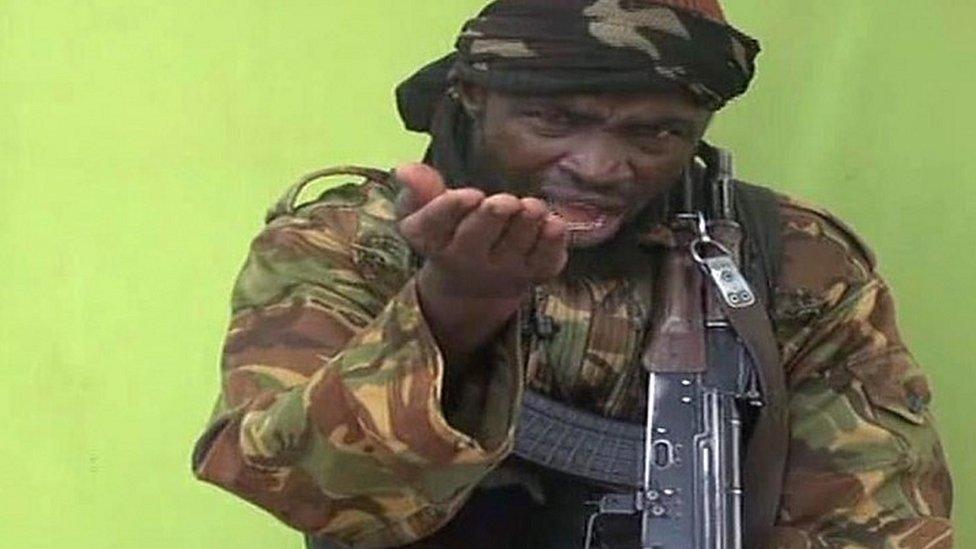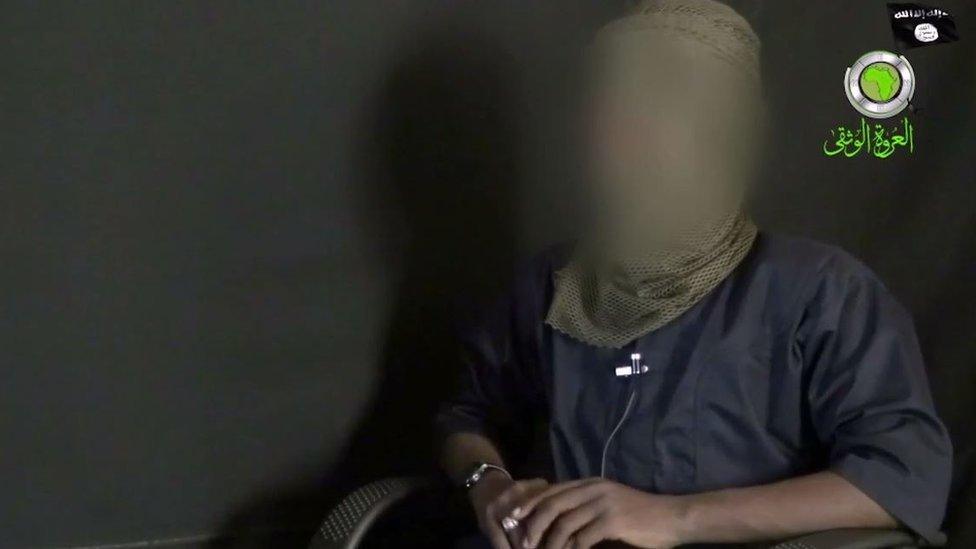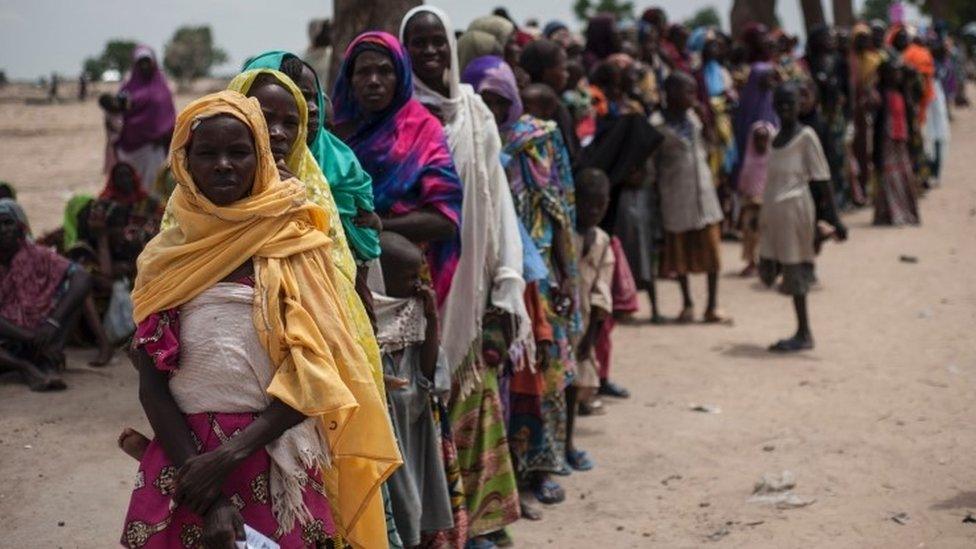Boko Haram in Nigeria: Split emerges over leadership
- Published

Abubakar Shekau released an audio message on Wednesday, the first time he had been heard from for a year
This story was last updated on 5 August 2016.
The disputed leader of Boko Haram has said he is still in charge of Nigeria's militant Islamist group despite a statement by so-called Islamic State that he had been replaced.
Abubakar Shekau denounced the IS declaration that Abu Musab al-Barnawi was now leader.
Shekau accused al-Barnawi of trying to stage a coup against him.
Boko Haram is fighting to overthrow Nigeria's government and establish an Islamic State in the north.
In the last 18 months it has lost most of the territory it had controlled after being pushed back by an offensive by the forces of Nigeria and its neighbours.
Boko Haram aligned itself with IS in March 2015.
Shekau was last heard from in an audio message last August, saying he was alive and had not been replaced - an IS video released in April said the same.
In a 10-minute audio message in both Arabic and Hausa, Shekau appeared to distance Boko Haram from IS, but still called its leader Abu Bakr al-Baghdadi "caliph".

In a Boko Haram video from January 2015, Abu Musab al-Barnawi was described as the group's spokesman
He said that some in Boko Haram had stopped him communicating with al-Baghdadi.
"I was asked to send my ideology in writing to the caliph but it was manipulated by some people in order to achieve their own selfish interests," he added, describing a coup attempt against him.
He said he had sent eight different letters to IS leaders but they did not act on them, only to hear the news that he had been replaced.
He then described al-Barnawi and his followers as polytheist.

Analysis: Nasidi Adamu Yahaya, BBC Africa, Abuja

The Boko Haram insurgency has displaced more than two million people
Boko Haram has split before but this is the most serious division to date.
Abubakar Shekau's outburst clearly shows that there are deep disagreements, which could translate into clashes between the foot soldiers loyal to the two leaders.
It is also a sign of the weakness of the group, possibly foreshadowing an eventual collapse.
Military officials say the split is an indication that the group is breathing its last.
But some security analysts caution that the internal wrangling could make it more deadly and unpredictable.
Nigeria and the other regional forces will now need to turn this factionalism to their advantage.

Shekau had been accused of hoarding food and ammunition and also of driving away IS military advisers.
BBC's Abuja bureau editor Naziru Mikailu says this split is likely to have a major impact on the way the group operates and could be a turning point in the fight against the insurgents.
Shekau took over as the group's leader after its founder, Muhammad Yusuf, died in Nigerian police custody in July 2009.
Under his leadership Boko Haram became more radical, carried out more killings and swore allegiance to IS in March 2015.

Boko Haram at a glance:
Founded in 2002, initially focused on opposing Western-style education
Launched military operations in 2009
Thousands killed, mostly in north-eastern Nigeria, hundreds abducted, including at least 200 schoolgirls
Joined so-called Islamic State, calls itself IS's "West African province"
Seized large area in north-east, where it declared caliphate
Regional force has retaken most territory

In numerous videos, Shekau taunted the Nigerian authorities, celebrating the group's violent acts, including the abduction of the more than 200 Chibok schoolgirls in April 2014.
Nigeria's army has claimed to have killed him on several occasions, and he has not appeared in a video since Boko Haram aligned itself with IS.